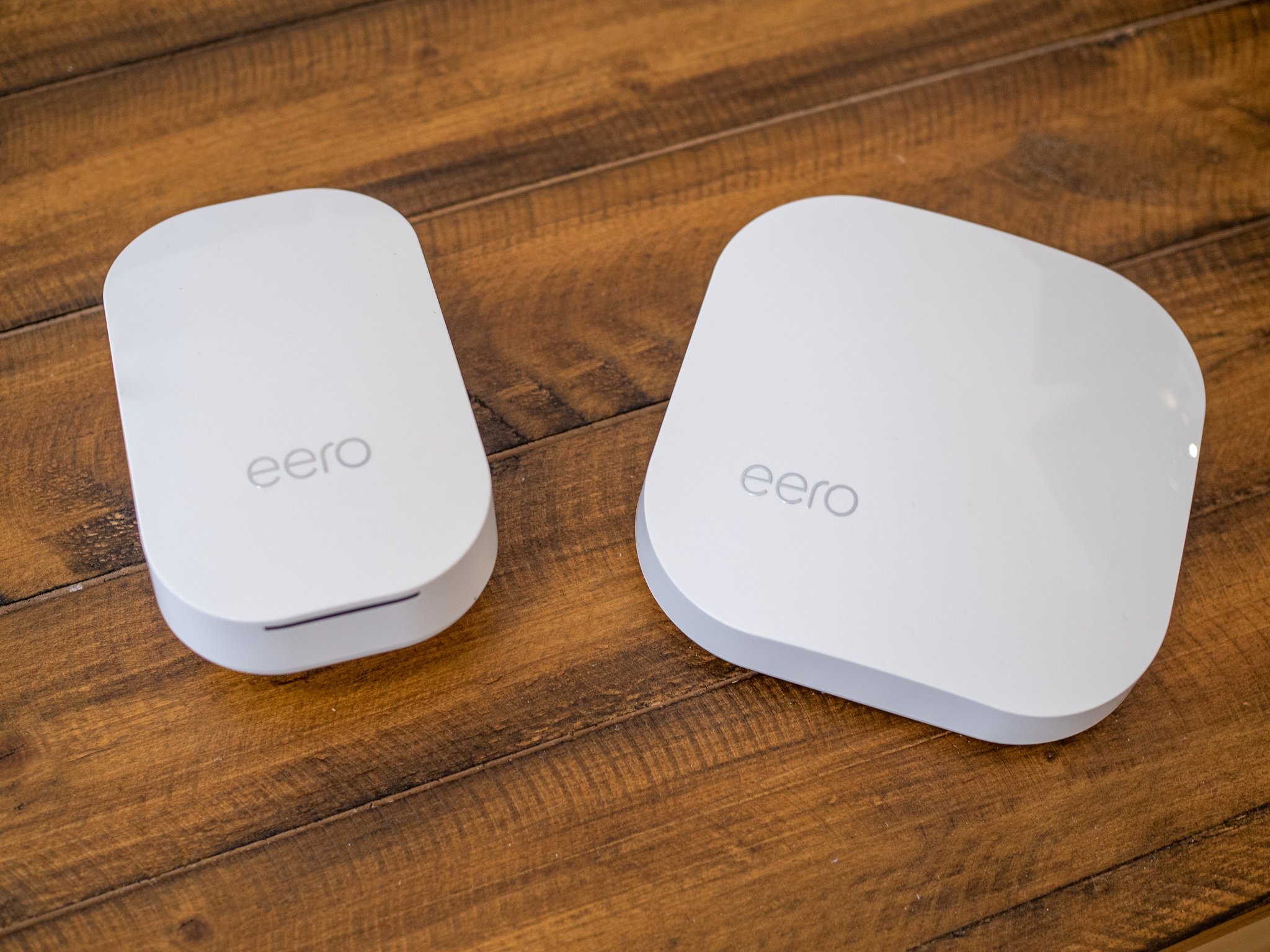Android Central Verdict
Bottom line: Eero's biggest win is in its simplicity. You just plug it in, and it works. There's no advanced configuration, and the system handles moving devices between the base and Beacons seamlessly. It has a great app that's easy to use to manage your network. It may be overkill for small spaces, but for larger homes, it's excellent when you add Beacons.
Pros
- +
Dead-simple setup
- +
Great app interface
- +
Excellent network performance
- +
Easy to expand network later
- +
Socket-mounted Beacons are great
Cons
- -
Subscription offers questionable value
- -
Overkill for apartment dwellers
- -
No Wi-Fi 6
- -
More expensive than Eero gen 3
Why you can trust Android Central
Eero is one of the best-known names in mesh networking, and for good reason. It's a router system that's both simple and powerful, and one that makes it easy to configure as big as your house (and beyond) requires without adding needless complication.
The original Eero Pro system has been around quite a long time, and there's even a newer (and less expensive) version available, but the Eero Pro is still on sale as the top-of-the-line offering because of its capabilities.
Eero Pro What I like
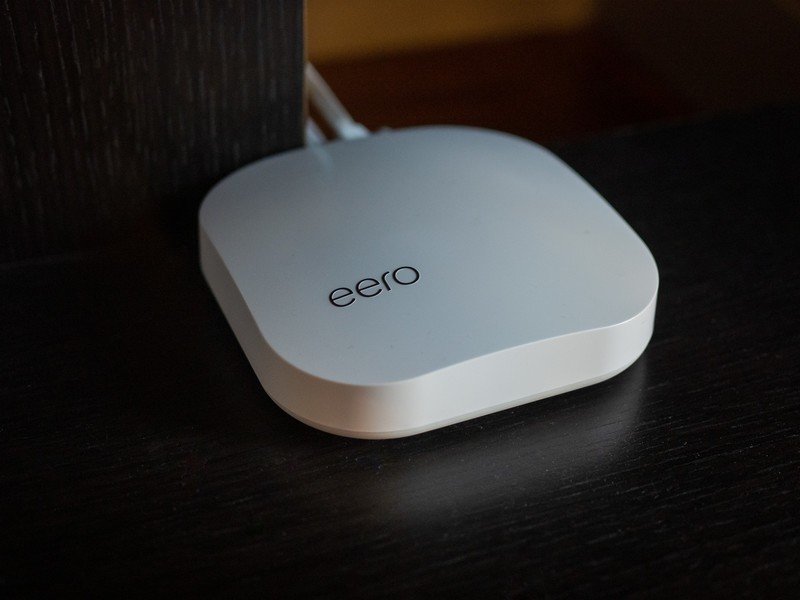
Like every other eero, the Pro is awesome because of just how simple it is to set up. Plug it in, download the app on your phone, and you'll be up and running in a few moments. Everything is configured automatically, whether you're using a single Eero pro or expanding your network with additional Eero Pros, eeros, or Beacons. The Eero Pro is also compact and unassuming, without hideous antennas or blinking lights — this is a router you could actually leave out on a counter or entertainment center without being embarrassed.
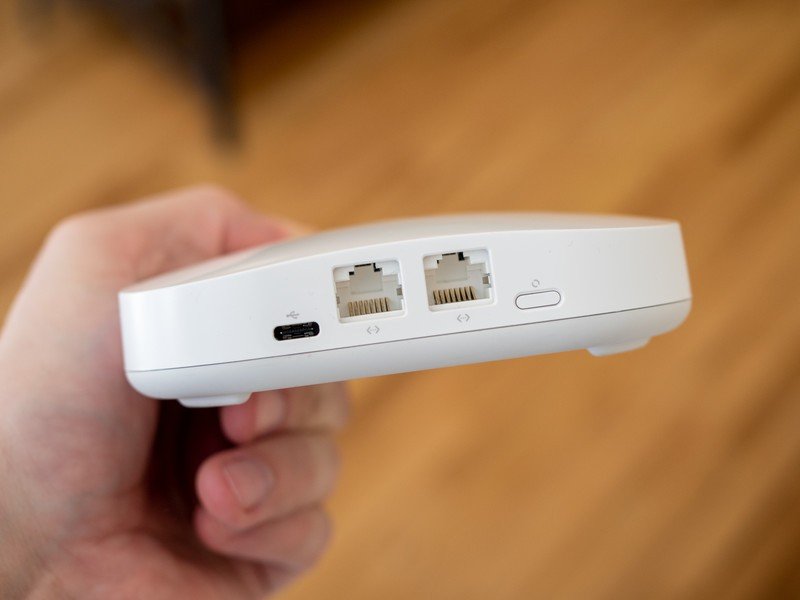
Eero wins more points for its excellent app, which is how you monitor and control your network. The dashboard gives you a quick look at everything happening with each of your eeros and all of the devices on the network, and you can quickly troubleshoot issues and be notified when devices join your network. These features are more commonplace nowadays, but still not universal — and the app isn't burdened by a bad interface or bugs.
I particularly appreciate the way Eero handles software updates, giving you a one-tap button in the app to reboot and apply updates to every node in the network. You can even do this when you're away from home, which is the perfect time to let your network go down for a handful of minutes. And unlike so many routers, Eero actually keeps its hardware regularly updated!
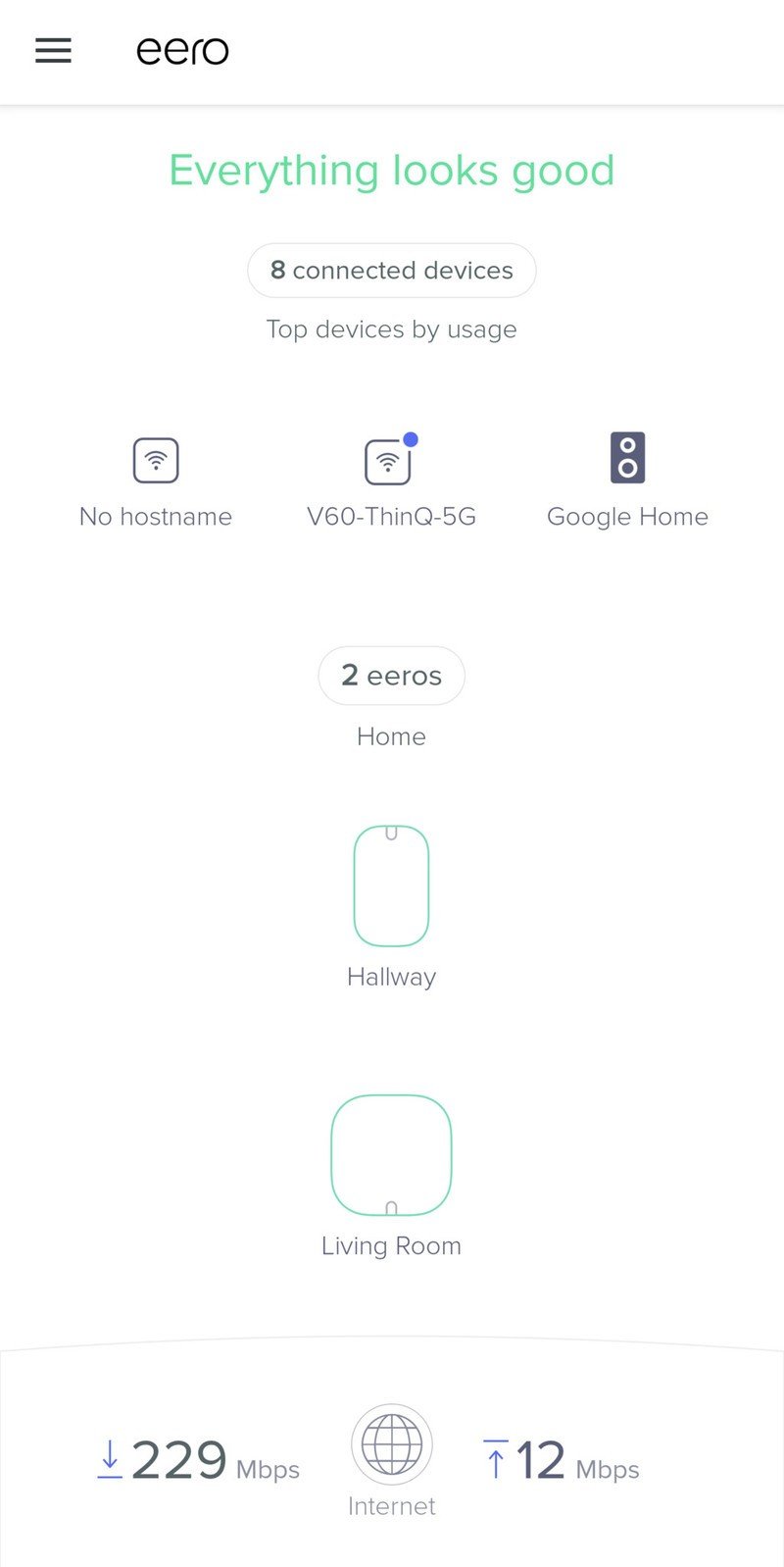
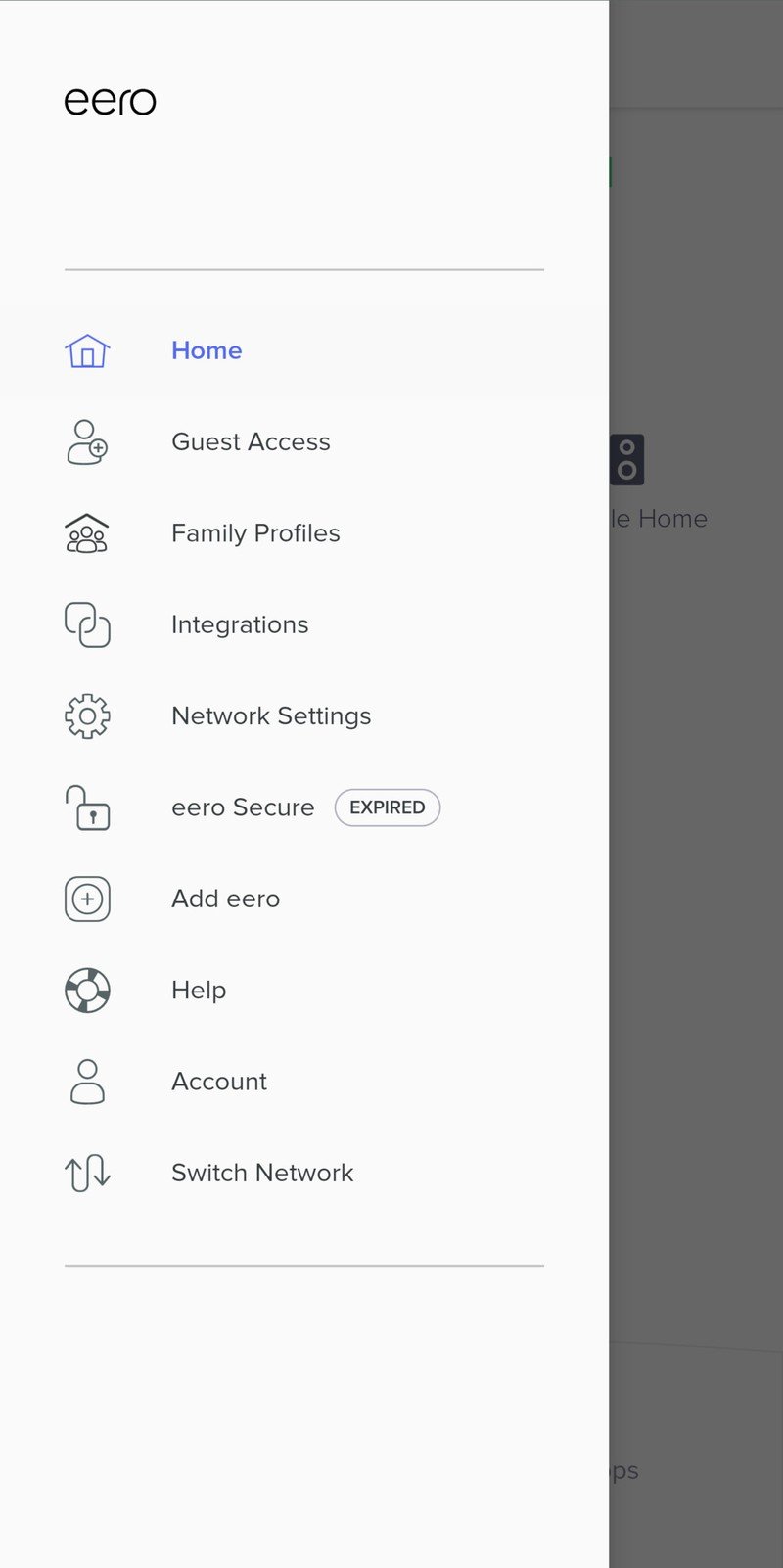
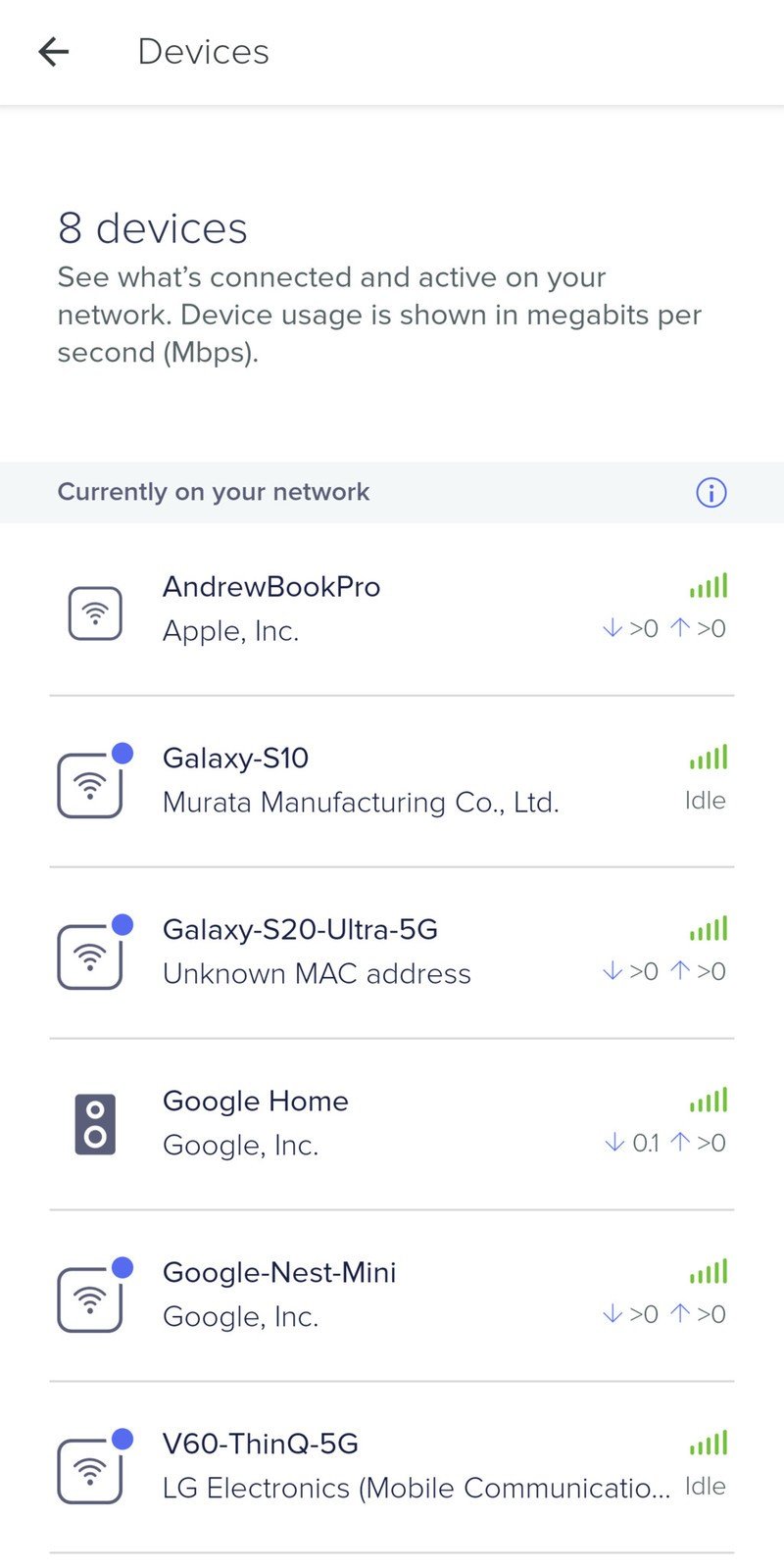
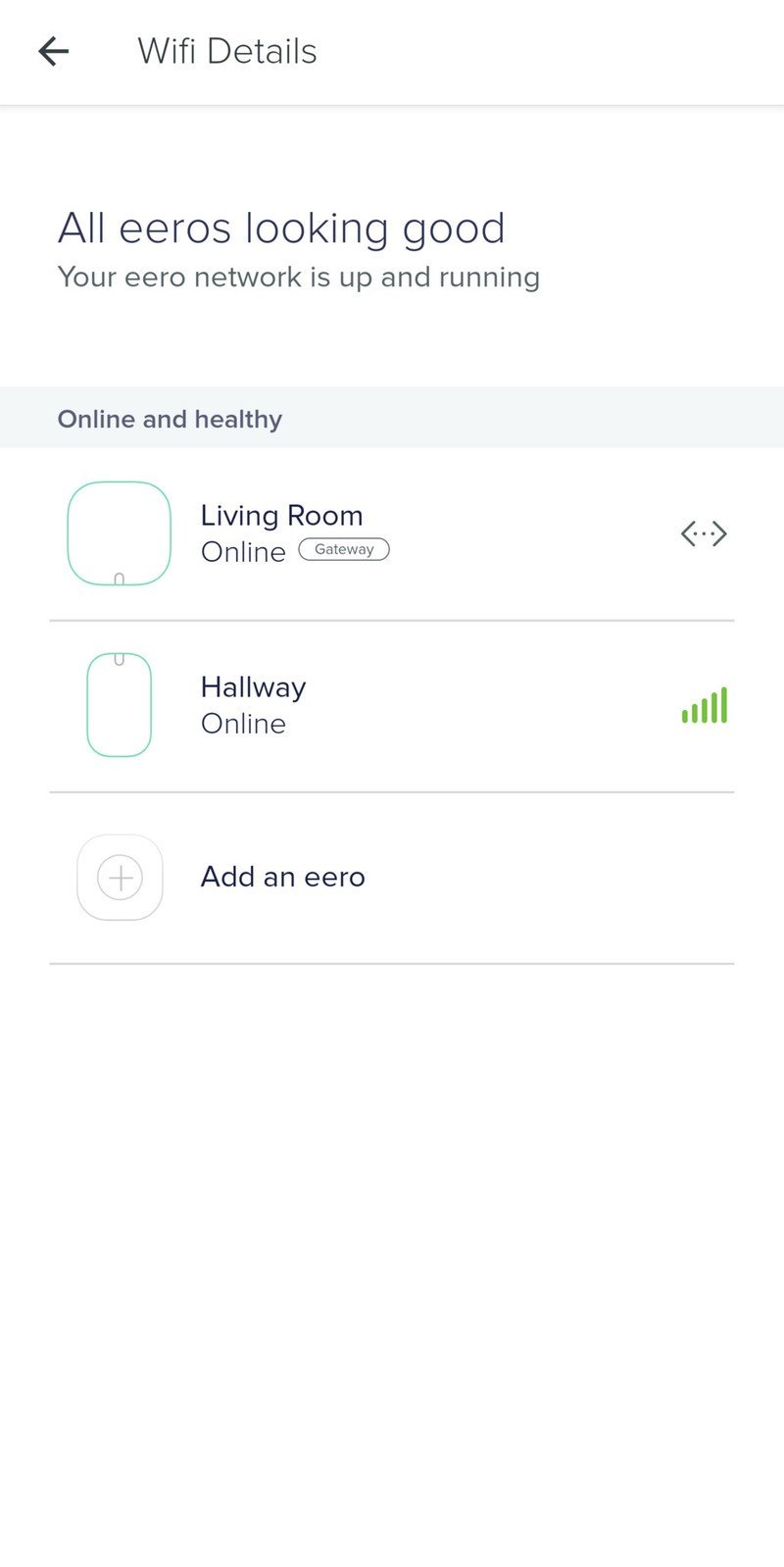
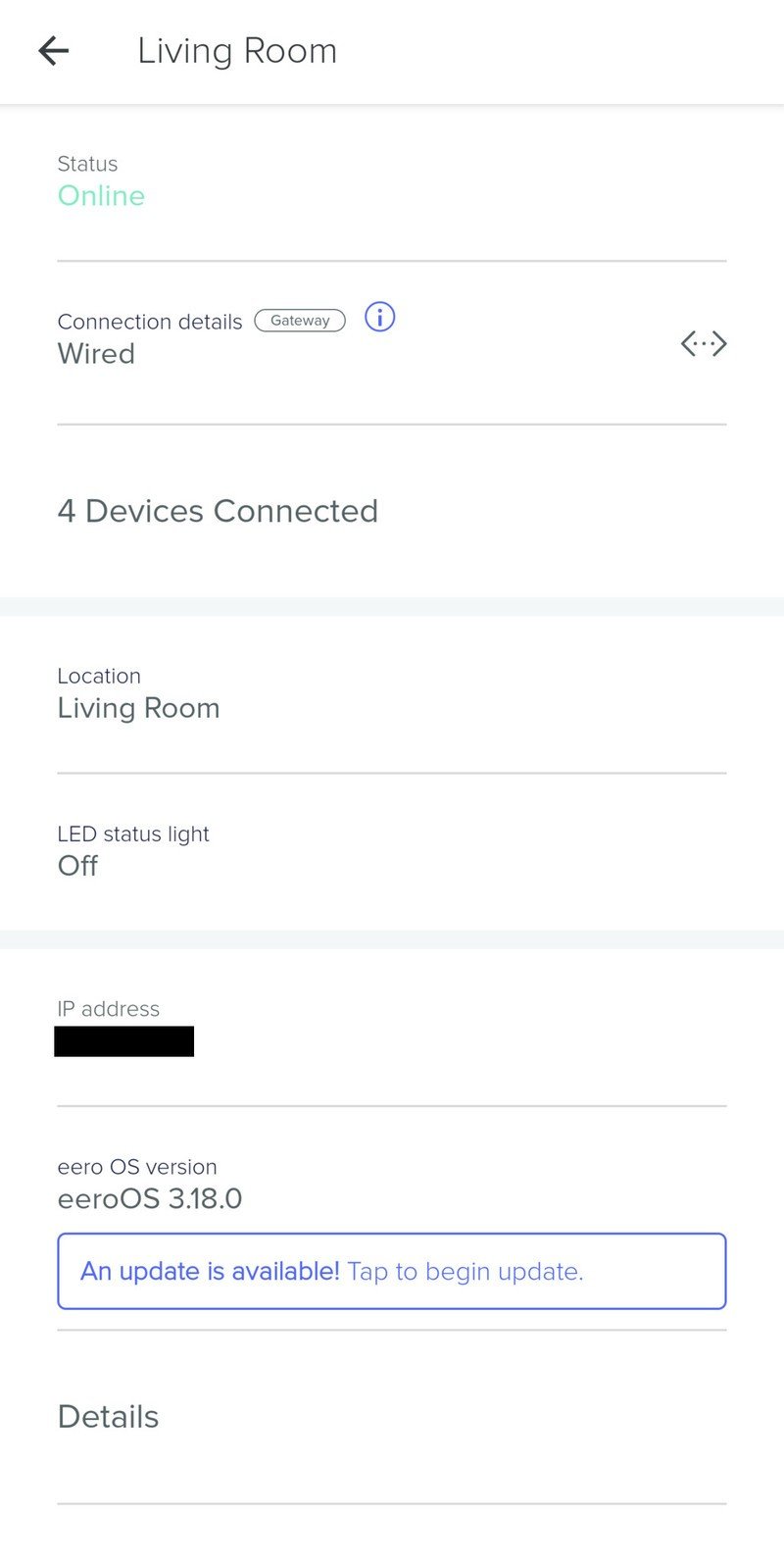
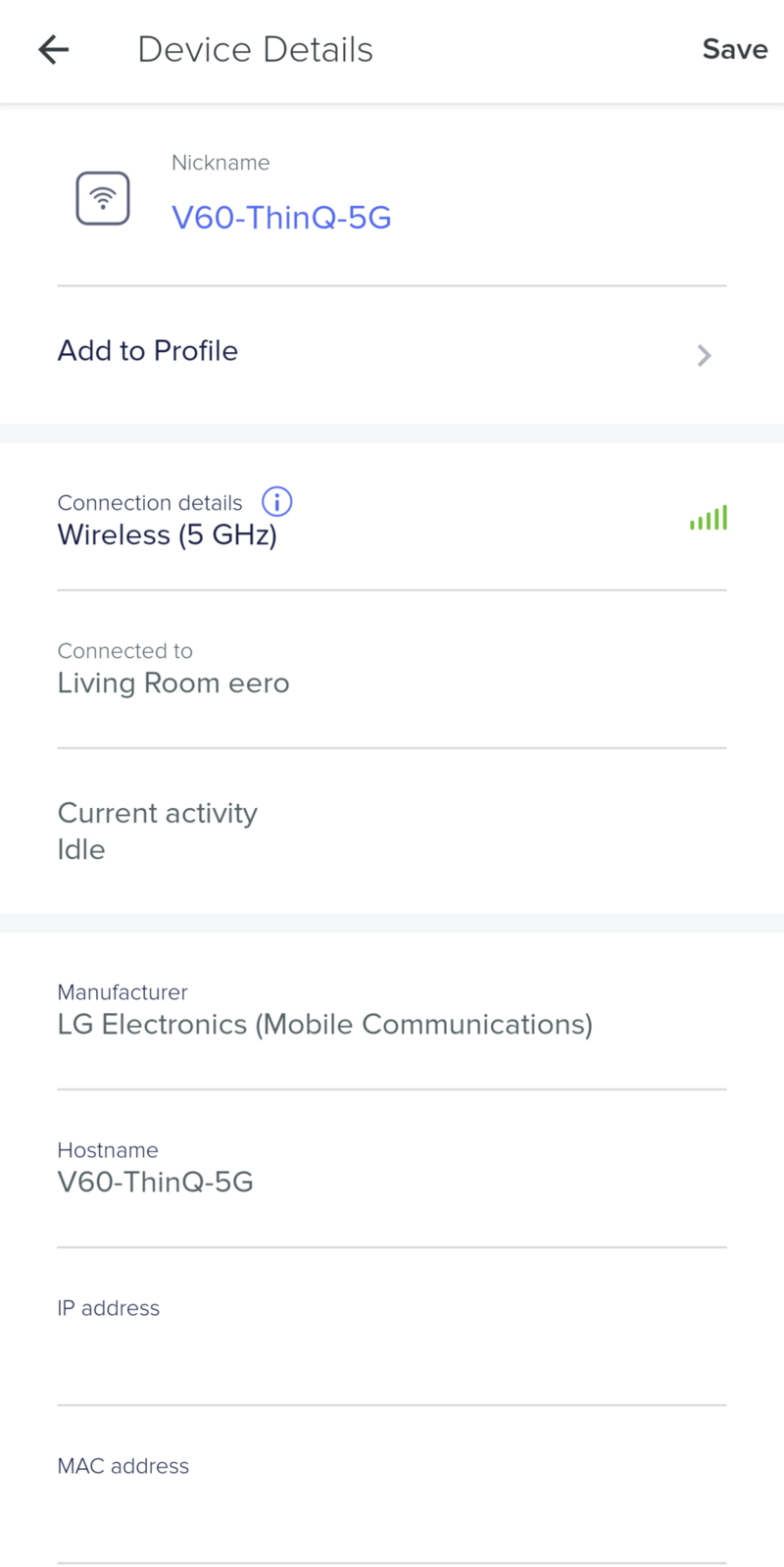
Source: Andrew Martonik / Android Central
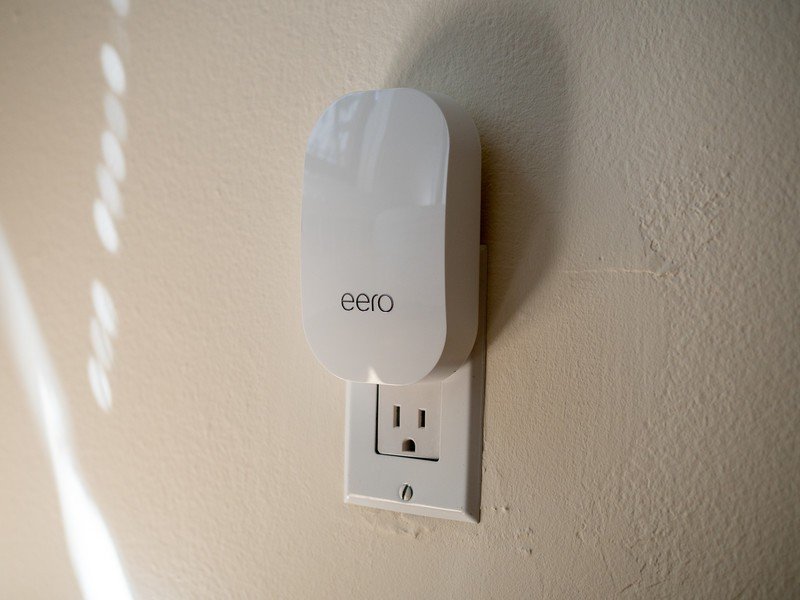
The great power of the Eero comes in when you start to add Beacons or other Eero units to create a mesh network. You can add new nodes and move them around at will, with no additional configuration or headache. Your phones, laptops, tablets and smart home devices never have issues connecting to any of the mesh nodes, and the network just flows smoothly and load-balances on its own. The multi-device kits the Eero Pro is sold in include Beacons, which unlike the new Eero units are power plug-mounted so there's no additional power supply or cables — just find an open socket in any room, and you've extended your network. They even have soft white night lights on them.
The big area the Eero Pro differentiates itself from the standard Eero system is that the main base unit is actually more capable and improves the performance of the entire network if you use it in a mesh configuration. The "base" unit is functionally more capable than a standard eero, with a tri-band radio that increases throughput to/from your other eeros without colliding with the rest of the internet traffic happening on the user-accessible dual-band network. The standard Eero (and Beacons) are only dual-band, which can lead to reduced speeds that would be noticeable if you have dozens of devices on your network — as so many of us do.
Eero Pro What I don't like
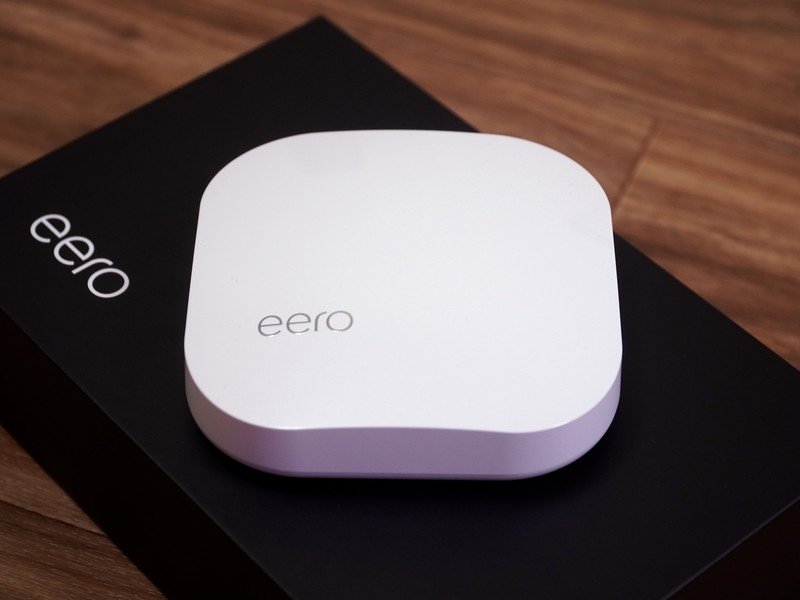
There isn't much you can dislike about the Eero system in terms of its capabilities or ease of use. The only real shortcoming of the hardware itself is that there are only two ethernet ports, with one being used for your internet uplink — so if you need to hardwire more than one device, you'll have to use an extra multi-port switch, which sort of defeats the purpose of having a clean, simple router like the Eero Pro.
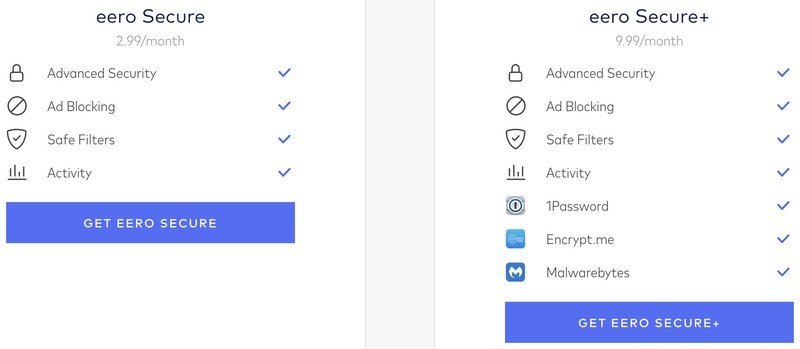
On the service side, Eero tries to push its "Eero Secure" subscription service, which starts at $3 per month. For the extra money, you get advanced tools for monitoring devices on your network, plus parental controls for managing what content can hit specific devices, and network-level adblocking. (You can also get Eero Secure+ as a bundle for $10 per month with 1Password, Encrypt.me, and Malwarebytes.) I'm hesitant to pay an extra $36 per year to get features that are available for a one-time purchase with other routers and services, especially when the Eero is already a premium-priced product.
Further on the discussion of price and value, this is the only real downside of the Eero Pro: it's expensive. At $200 for just the base unit, or $300 for the base unit and one Beacon, you're shelling out a hefty bit of money here. There's no doubt that Eero makes a great case for the Pro with its design, ease of use and excellent app, but it's also more expensive than a lot of great routers.
Eero Pro Should you buy it?

The Eero Pro is a great Wi-Fi router, and it's even better when used as a mesh Wi-Fi system. It's easy to set up, easy to maintain and its hardware is a breath of fresh air in the world of very ugly Wi-Fi routers. It's also reliable, and Eero has a good track record of keeping its devices updated with new software.
4 out of 5
But it's a premium product, and that means it's overkill for some people. If you're going to buy just the single Eero Pro — for example, to use in an apartment or small house — you're paying extra for mesh capabilities that you're not using and would be better off with another one of the best wireless routers. And in that scenario, you probably aren't as concerned with having granular control over all of the devices on the network either.
Many people who are just focused on getting eero's easy-to-use system with coverage for a larger home will be better off with the new third-generation eero. For only $199 (currently $50 off MSRP), you get a set of three identical Eero units to distribute around your home; and while speeds aren't as good as the Eero Pro, for some people coverage and price are more important. For medium-size applications, there's also a two-pack for $135. And even at that reduced price, you get eero's excellent setup experience, app, and reliability.
If you don't need any mesh networking capabilities, you can get really good routers for under $100. And Eero even sells individual third-gen eeros for just $80, which will get the job done in an apartment.
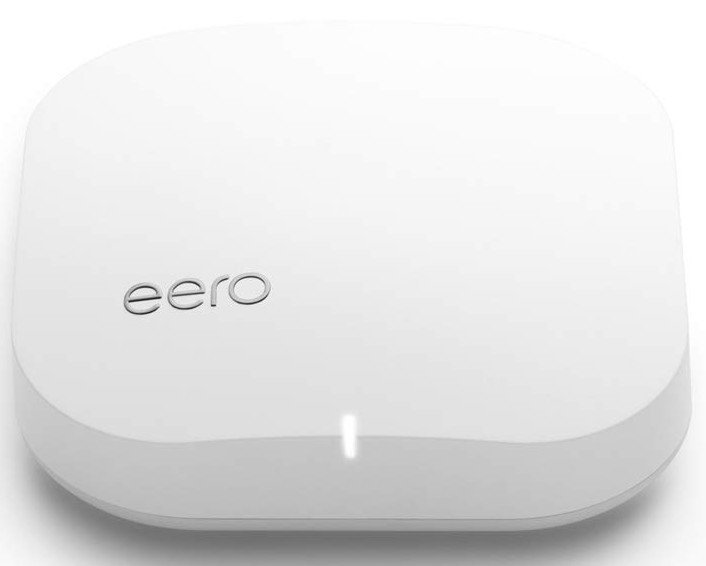
Eero Pro
A really good Wi-Fi router that's easy to use and provides great coverage with the addition of Beacons. But it's overkill for small spaces.
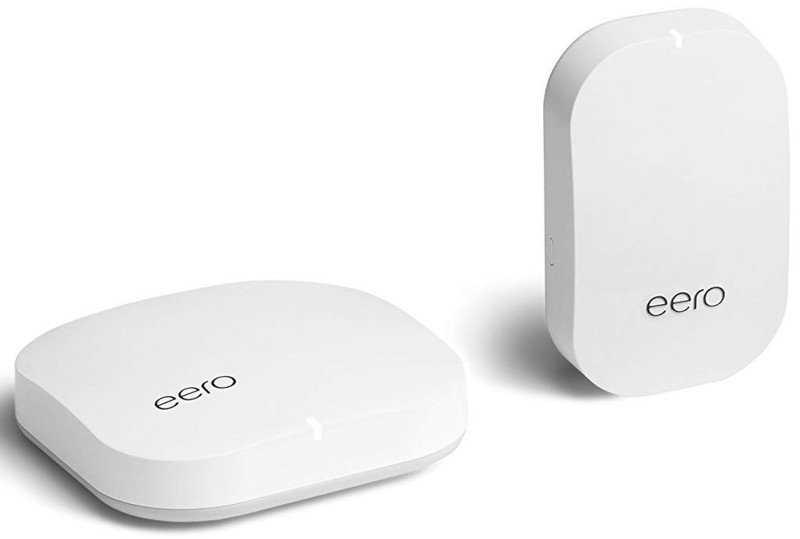
Eero Pro with Beacon
A great mesh Wi-Fi system that's easy to set up and provides great coverage for a house. You just have to pay a good amount of money for it.
Andrew was an Executive Editor, U.S. at Android Central between 2012 and 2020.
